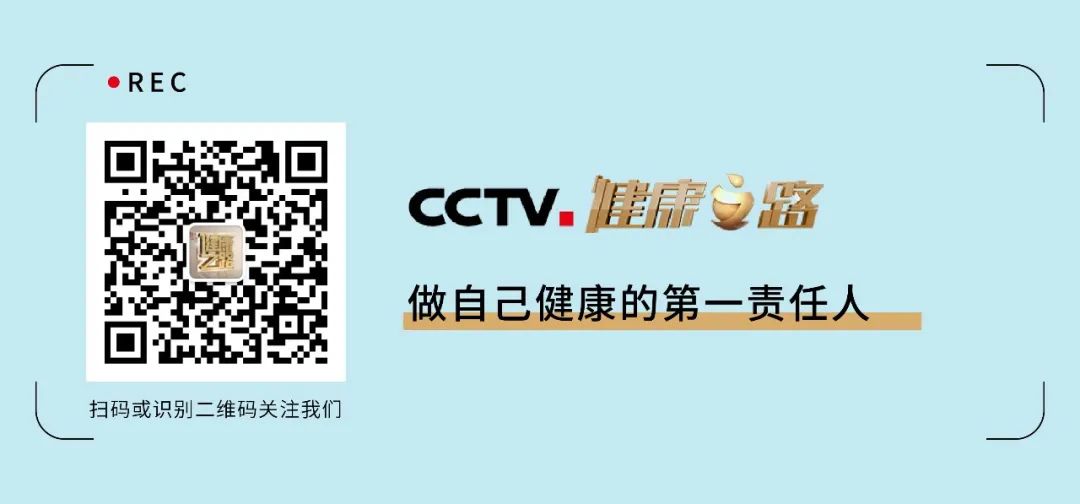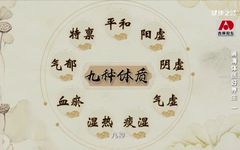 Are you afraid of the cold with a pale complexion?Do you have a flushed face and dry mouth?Tracing back to the root, it is related to your constitution.Identifying your constitutionis essential to take control of your health!
Are you afraid of the cold with a pale complexion?Do you have a flushed face and dry mouth?Tracing back to the root, it is related to your constitution.Identifying your constitutionis essential to take control of your health!
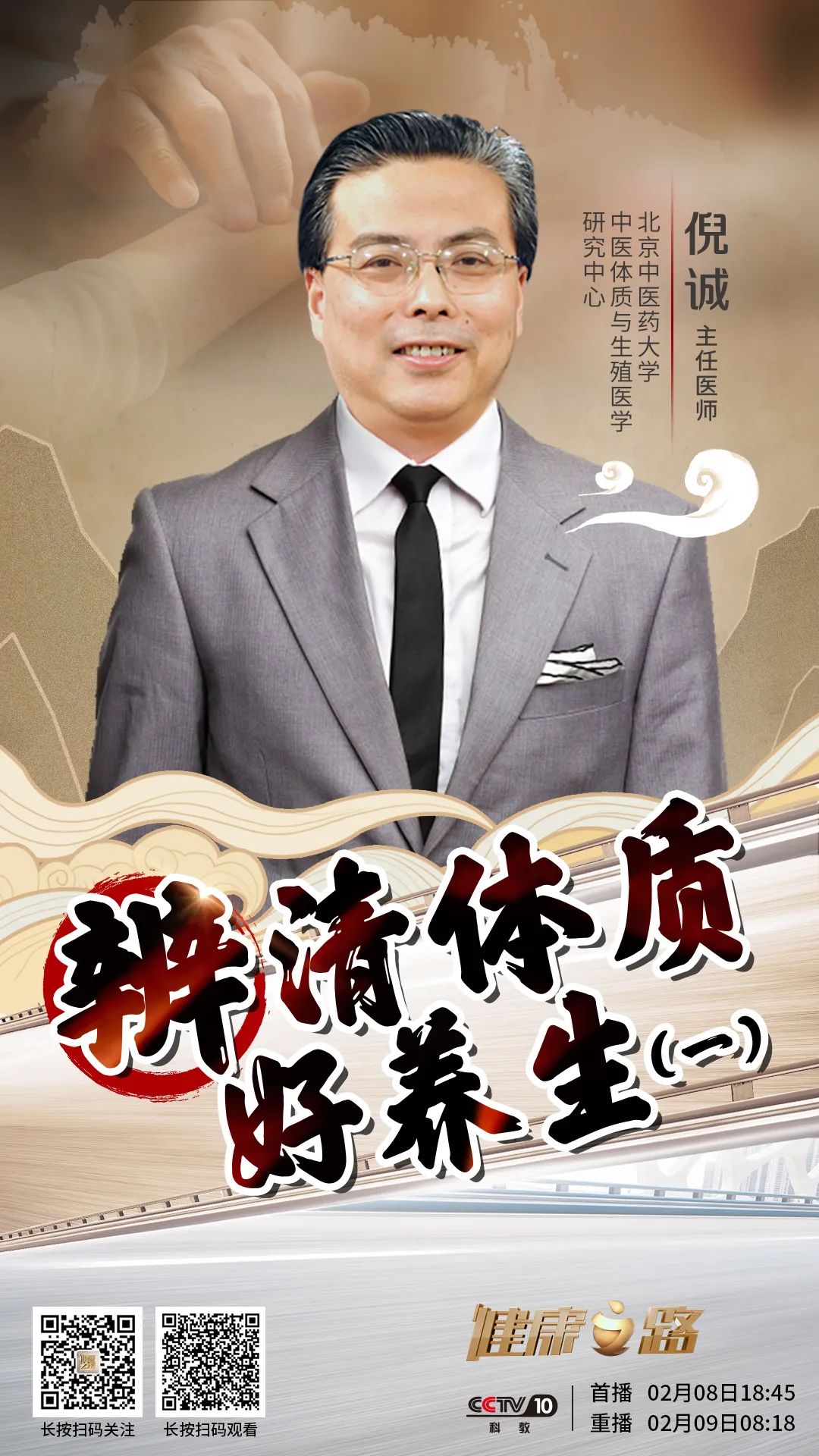
Identifying Constitution for Personalized Health Management
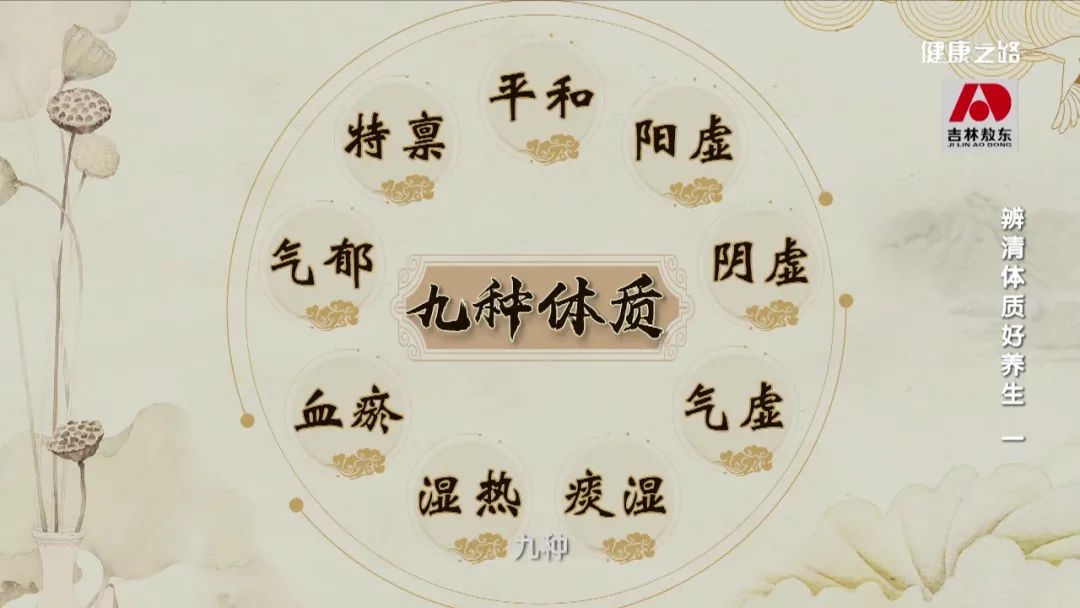 There are nine types of human constitution. One is balanced, while the other eight are imbalanced. The balanced constitution is the healthiest, while Qi deficiency, Yang deficiency, and Yin deficiency are referred to as deficient constitutions, and phlegm-dampness, damp-heat, blood stasis, and Qi stagnation are called excess constitutions. Special endowments are unique traits. According to epidemiological surveys, the balanced constitution accounts for about 32% of the Chinese population.
There are nine types of human constitution. One is balanced, while the other eight are imbalanced. The balanced constitution is the healthiest, while Qi deficiency, Yang deficiency, and Yin deficiency are referred to as deficient constitutions, and phlegm-dampness, damp-heat, blood stasis, and Qi stagnation are called excess constitutions. Special endowments are unique traits. According to epidemiological surveys, the balanced constitution accounts for about 32% of the Chinese population.
Health Management for Yang Deficiency Constitution
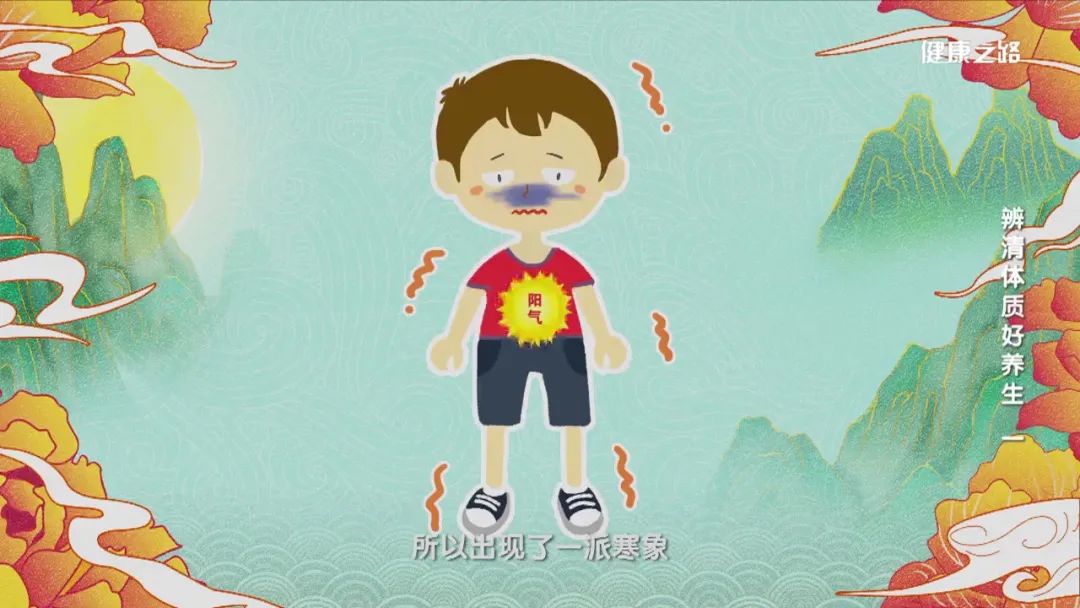 The Yang Qi in the body is like a small sun, which is an important substance that promotes blood circulation and sustains life. Once Yang Qi is depleted, a person’s life comes to an end. The fear of cold arises because the small sun in the body is insufficiently warm, leading to a cold manifestation.
The Yang Qi in the body is like a small sun, which is an important substance that promotes blood circulation and sustains life. Once Yang Qi is depleted, a person’s life comes to an end. The fear of cold arises because the small sun in the body is insufficiently warm, leading to a cold manifestation. 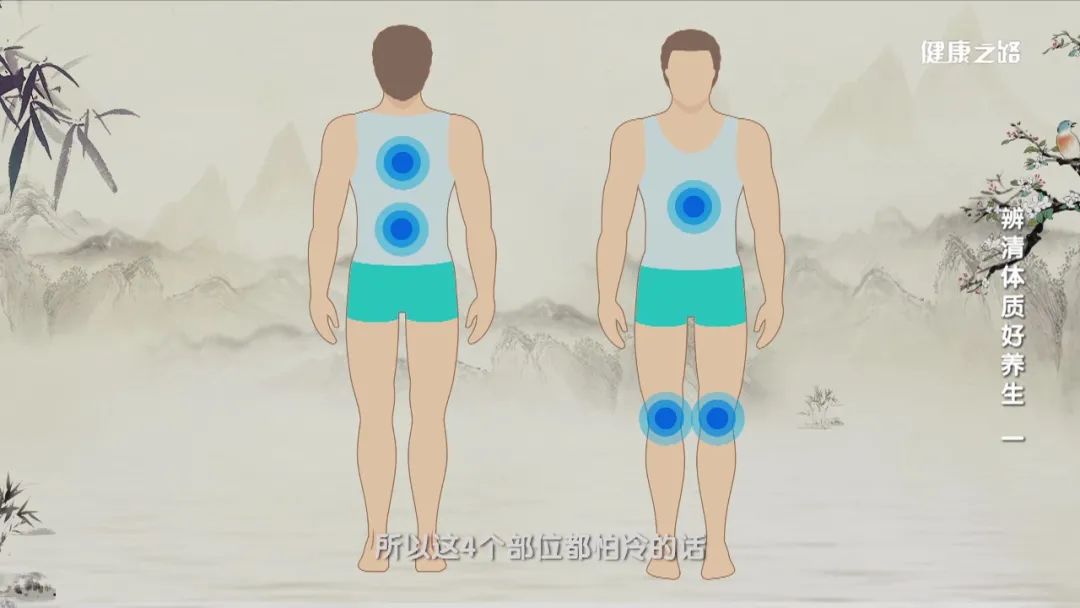 The typical characteristics of a Yang deficiency constitution are fear of cold and preference for warmth. From the perspective of Traditional Chinese Medicine (TCM), the back is associated with Yang. Individuals with Yang deficiency are most susceptible to cold in the back, followed by the lower back, knees, and stomach. If these four areas are cold-sensitive, it is a typical Yang deficiency constitution, reflecting a general fear of cold throughout the body. People who are afraid of the cold are most prone to catching colds during seasonal changes and may experience dysmenorrhea, impotence, rheumatoid arthritis, abdominal pain and diarrhea, and habitual constipation.
The typical characteristics of a Yang deficiency constitution are fear of cold and preference for warmth. From the perspective of Traditional Chinese Medicine (TCM), the back is associated with Yang. Individuals with Yang deficiency are most susceptible to cold in the back, followed by the lower back, knees, and stomach. If these four areas are cold-sensitive, it is a typical Yang deficiency constitution, reflecting a general fear of cold throughout the body. People who are afraid of the cold are most prone to catching colds during seasonal changes and may experience dysmenorrhea, impotence, rheumatoid arthritis, abdominal pain and diarrhea, and habitual constipation. 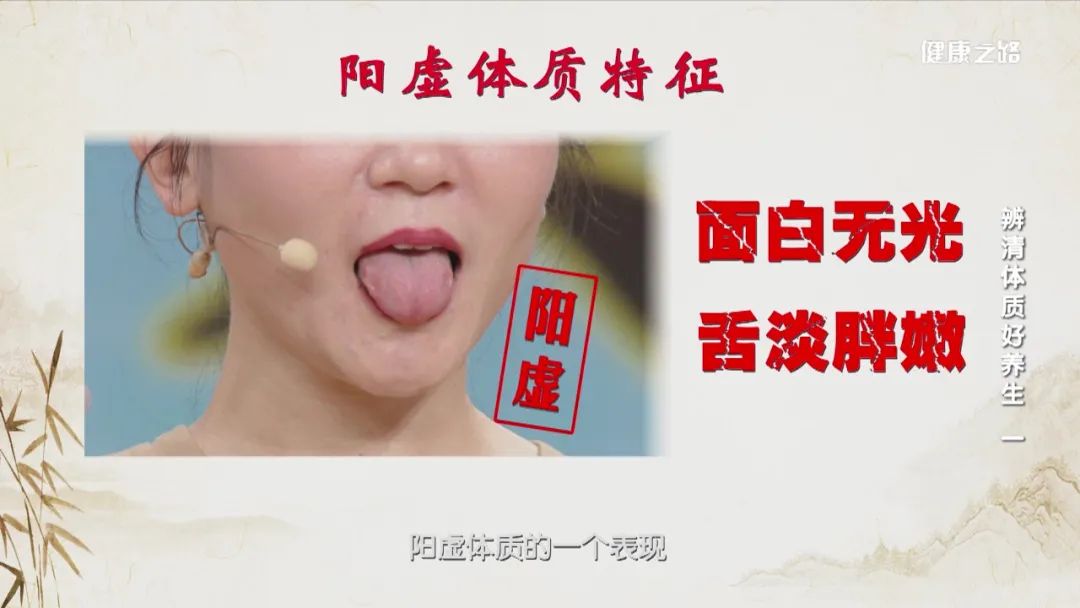 In TCM, it is often said, “To know by observation is called spirit.” For individuals with Yang deficiency constitution, the first step is to observe the complexion, and the second is to examine the tongue. Those with Yang deficiency typically present with a pale, dull complexion and a pale, swollen tongue.
In TCM, it is often said, “To know by observation is called spirit.” For individuals with Yang deficiency constitution, the first step is to observe the complexion, and the second is to examine the tongue. Those with Yang deficiency typically present with a pale, dull complexion and a pale, swollen tongue. 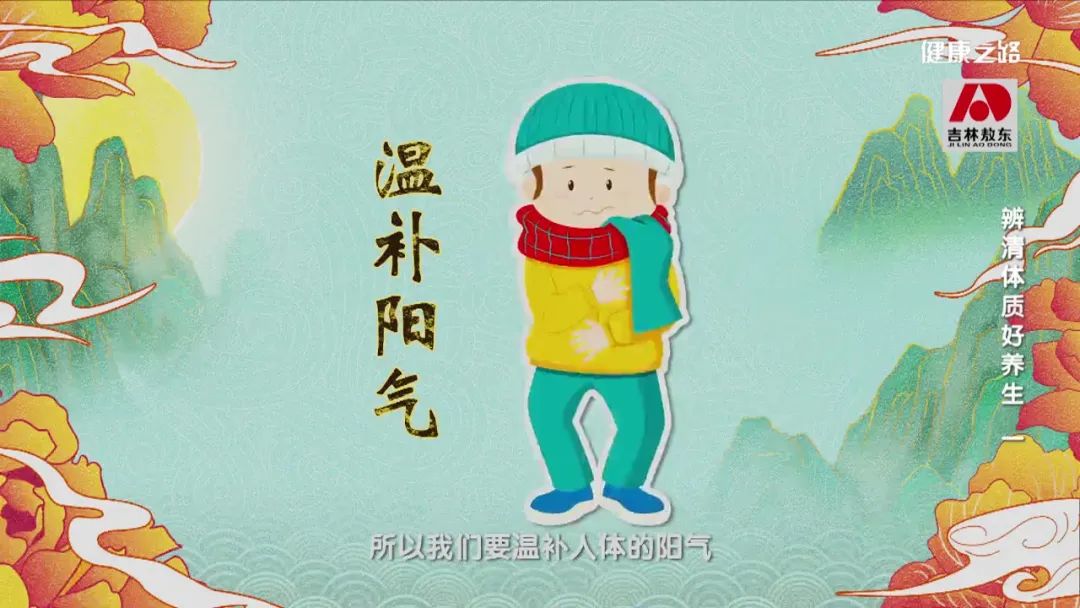 To regulate Yang deficiency constitution, the key is warmth. Individuals with Yang deficiency must keep warm in their daily activities and avoid wind and cold. It is best to live in a sunlit room, and in terms of diet, lamb is the preferred choice as it can warm and supplement Yang Qi.
To regulate Yang deficiency constitution, the key is warmth. Individuals with Yang deficiency must keep warm in their daily activities and avoid wind and cold. It is best to live in a sunlit room, and in terms of diet, lamb is the preferred choice as it can warm and supplement Yang Qi.
Method One:
Peach Wood Massage Hammer for Opening the Du Meridian
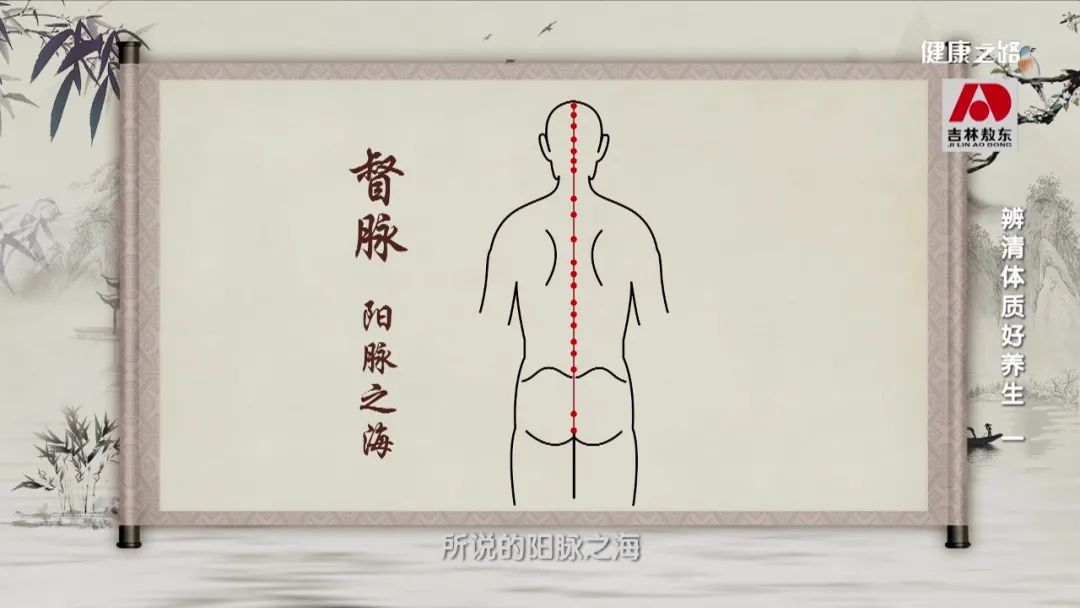
Draw a line from the navel to the intersection with the spine’s midline, which is the Mingmen Point.
The Du Meridian is known in TCM as the sea of Yang meridians. Opening the Du Meridian is equivalent to unblocking the Yang Qi throughout the body. The Du Meridian runs from the lower body upwards, so when tapping, it should also be done from bottom to top. Continue tapping until reaching the head, ideally until a slight soreness is felt. Do this once a day for 20 minutes until the whole body feels warm.
Method Two:
TCM Moxibustion for Regulating Yang Deficiency
Health Management for Yin Deficiency Constitution
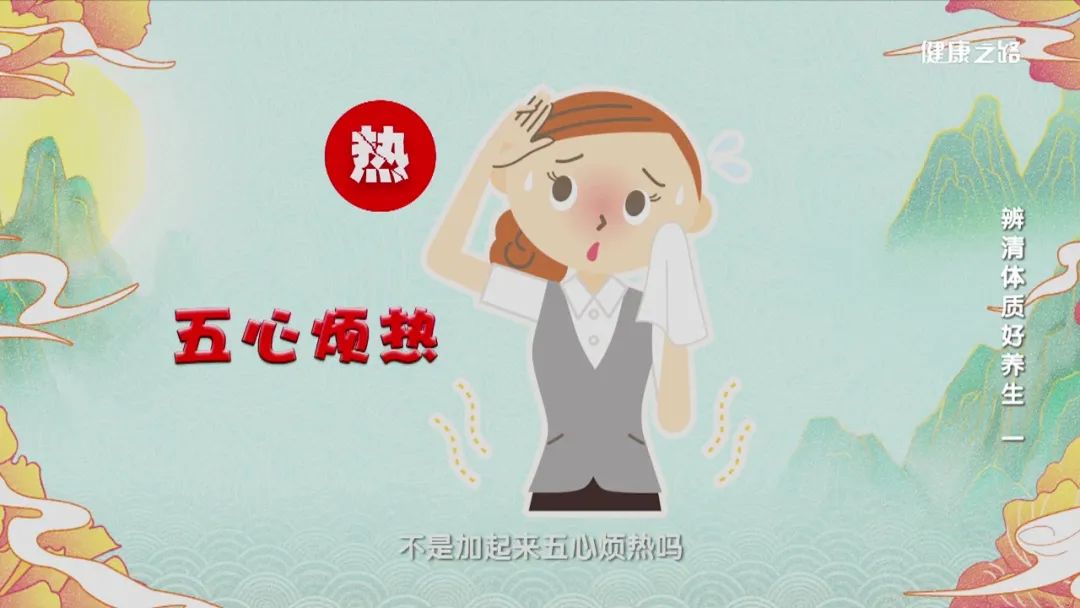 The typical characteristics of a Yin deficiency constitution are heat, dryness, redness, and irritability. Heat refers to the sensation of heat in the palms and soles, along with a feeling of heat in the chest. Dryness refers to dryness in the eyes, mouth, nose, throat, and skin. Redness refers to a flushed face and a red tongue. Irritability manifests as emotional agitation.
The typical characteristics of a Yin deficiency constitution are heat, dryness, redness, and irritability. Heat refers to the sensation of heat in the palms and soles, along with a feeling of heat in the chest. Dryness refers to dryness in the eyes, mouth, nose, throat, and skin. Redness refers to a flushed face and a red tongue. Irritability manifests as emotional agitation. 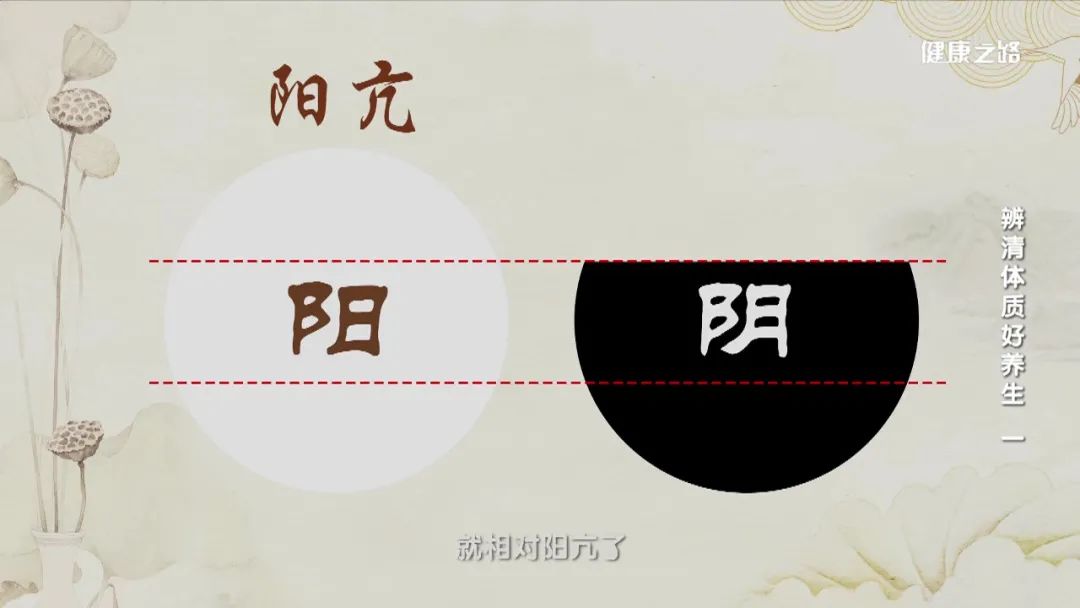 Yin deficiency refers to the lack of Yin fluids in the body. TCM emphasizes the balance of Yin and Yang, “When Yin is balanced, Yang is secreted, and the spirit is treated.” The body’s Yin fluids primarily nourish the organs, tissues, and systems; when Yin fluids are insufficient, the skin becomes dry and lacks nourishment. Redness indicates a type of false heat, not true heat; Yin deficiency generates internal heat. Yin deficiency leads to Yang excess, which in turn creates a type of false fire that exacerbates Yin deficiency and forces the limited fluids outward.
Yin deficiency refers to the lack of Yin fluids in the body. TCM emphasizes the balance of Yin and Yang, “When Yin is balanced, Yang is secreted, and the spirit is treated.” The body’s Yin fluids primarily nourish the organs, tissues, and systems; when Yin fluids are insufficient, the skin becomes dry and lacks nourishment. Redness indicates a type of false heat, not true heat; Yin deficiency generates internal heat. Yin deficiency leads to Yang excess, which in turn creates a type of false fire that exacerbates Yin deficiency and forces the limited fluids outward. 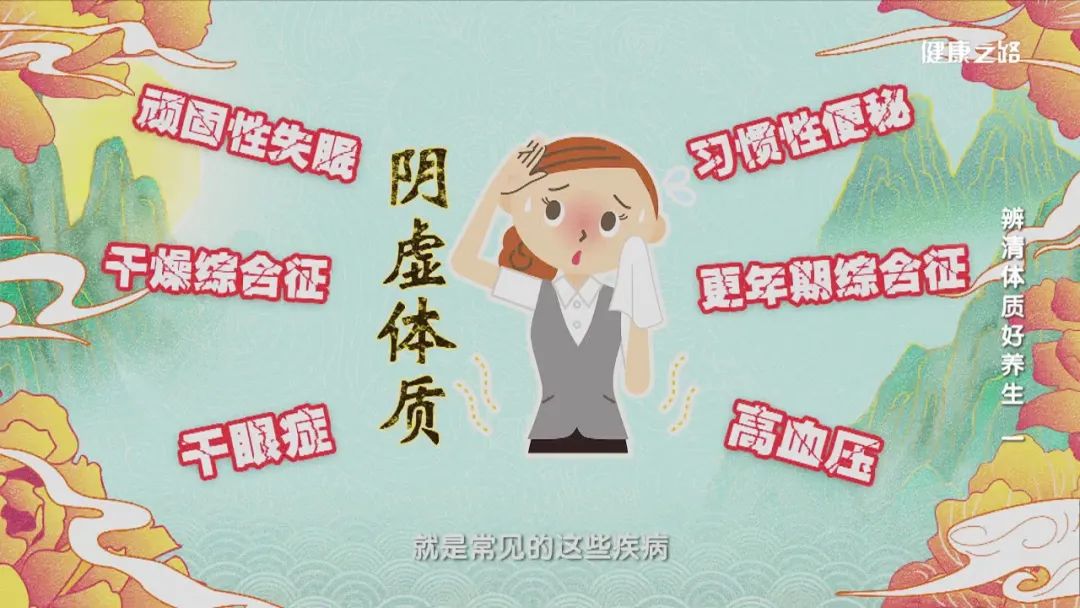 A Yin deficiency constitution can also lead to stubborn insomnia, dry syndrome, habitual constipation, menopausal syndrome, hypertension, and other diseases. The tongue manifestation of Yin deficiency is red tongue with little coating.
A Yin deficiency constitution can also lead to stubborn insomnia, dry syndrome, habitual constipation, menopausal syndrome, hypertension, and other diseases. The tongue manifestation of Yin deficiency is red tongue with little coating. 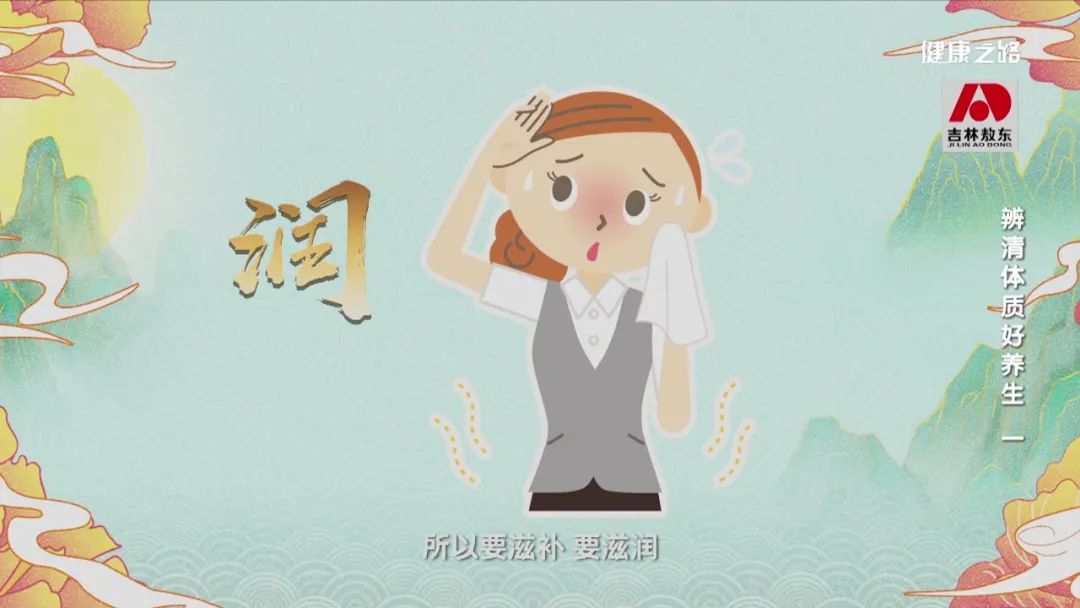 To regulate Yin deficiency constitution, the key is moisture, replenishing the insufficient Yin fluids in the body. For those with Yin deficiency, it is advisable to take a nap during the noon hours and overcome irritability. In terms of diet, the preferred foods are sweet and cooling, such as duck meat.
To regulate Yin deficiency constitution, the key is moisture, replenishing the insufficient Yin fluids in the body. For those with Yin deficiency, it is advisable to take a nap during the noon hours and overcome irritability. In terms of diet, the preferred foods are sweet and cooling, such as duck meat.
Dietary Therapy:
Honey and Tremella Steamed Lily Bulbs
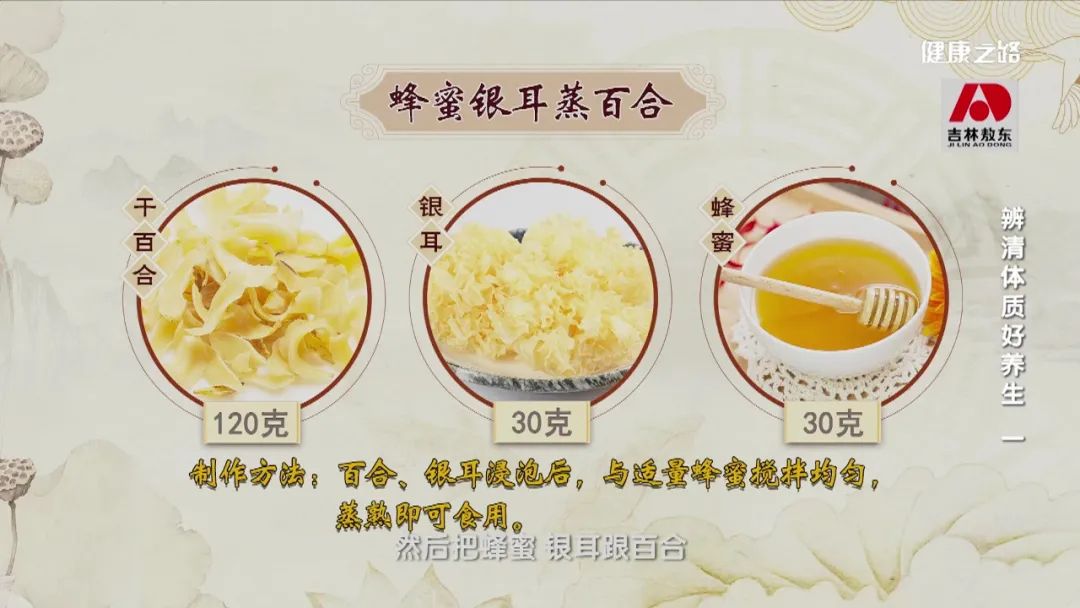
Lily bulbs can nourish Yin and moisten the lungs, calming the heart and soothing the spirit. Tremella has excellent effects in nourishing Yin and generating fluids, as well as benefiting Qi and nourishing blood. Honey is effective in nourishing Yin, moistening dryness, and promoting bowel movements.
Acupoint Massage for Yin Deficiency
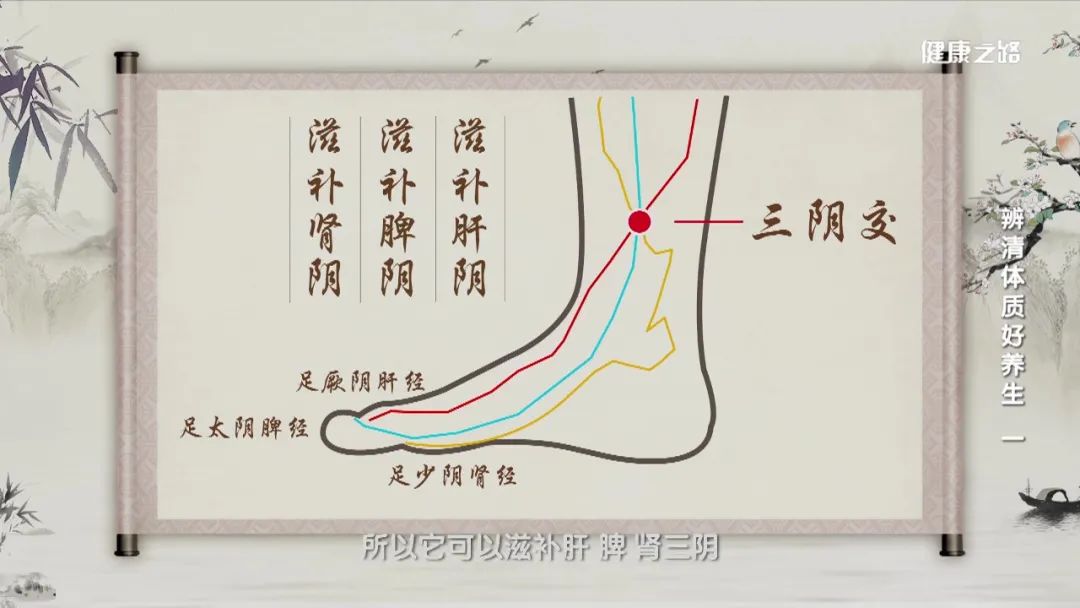
San Yin Jiao is the acupoint where the Foot Shaoyin, Foot Jueyin, and Foot Taiyin meet, which can nourish the three Yin organs: liver, spleen, and kidney. Taixi Point is the source point of the kidney meridian. Since kidney Yin is the foundation of the body’s Yin fluids, nourishing kidney Yin can help replenish the overall Yin fluids in the body.
The video channel is here! Click the video below for a quick three-step (share + like + comment) to learn a bit of health knowledge every day, and let’s be healthier together.
Health Road Program Broadcast Time
“Identifying Constitution for Better Health Management” (Part 1)
△ First Broadcast: February 8, 18:45
△ Rebroadcast: Next day 08:18
● More Exciting Content
1Chen Pi and Goji Berries, Besides Drinking Water, Can Also Be Used This Way | Health Road2Longan for Qi and Blood? Coughing? Eat Pears? TCM Tells You: Eating Right Matters | Health Road3Commonly Used Scallions, Ginger, and Fermented Black Soybeans Have These Effects! | Health Road4General Surgeons Urgently Remind: Do Not Do These Dangerous Things! | Health Road5Cold Starts from the Feet, Are You Really Cold? | Health RoadPlease contact the editor for reprints; unauthorized reprints will be reported.
Of course, everyone is welcome to share the article in their circle of friends.
Article Edited by: Yutian Editor: Baixia
